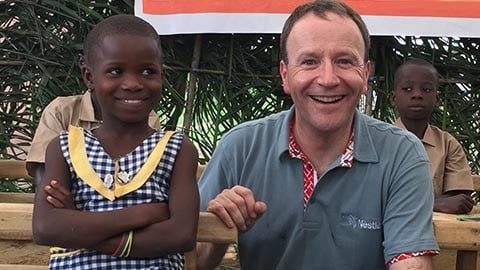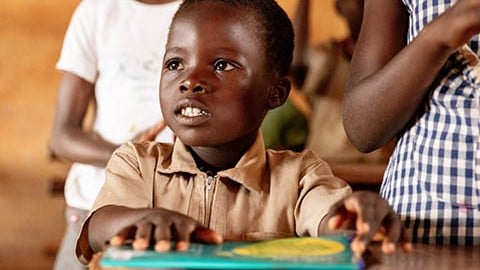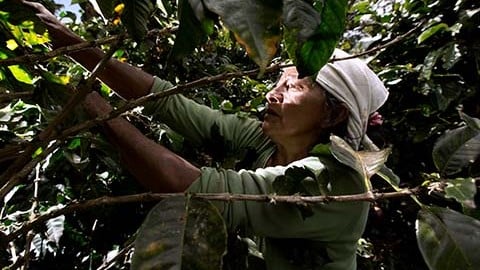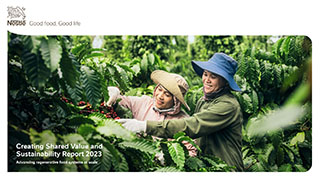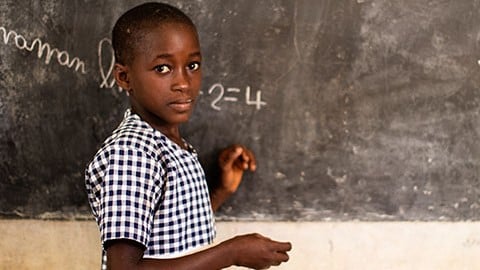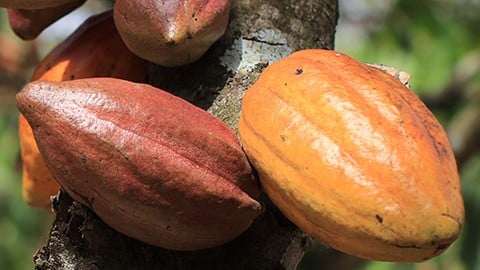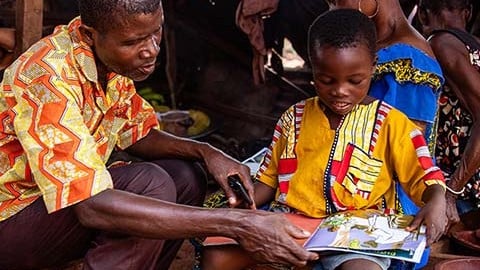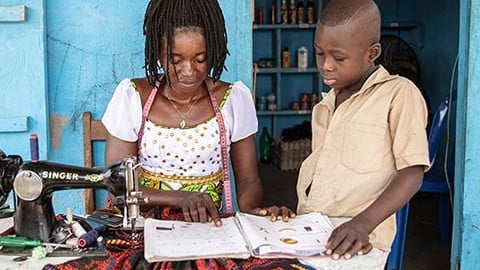We are helping to close the living income gap for cocoa-farming communities

Our innovative Nestlé income accelerator program for cocoa-farming families has successfully completed its ‘test at scale’ phase.
Cocoa-farming communities face immense challenges, from rural poverty and increasing climate risks to a lack of access to financial services and basic infrastructure, such as water, health care and education.
These factors can lead to social issues, including the prevalence of child labor risk on family farms. By helping families close the gap to a living income, the program aims to tackle child labor risks as well as other poverty-driven social issues. The income accelerator program is an important component of living income action plan (pdf, 2Mb), one of our 10 salient human rights issues.
Expanding the income accelerator program to 160 000 cocoa-farming families
Helping cocoa-farming families achieve a living income
The Nestlé income accelerator program aims to improve the livelihoods of cocoa-farming families. The program is rewarding cocoa-farming families not just for the quantity and quality of their cocoa beans, but also for practices that benefit the environment and local community.
Our holistic approach aims to deliver a long-lasting impact by incentivizing the enrollment of children in school while advancing regenerative agriculture practices and gender equality. The program rewards practices that increase crop productivity and help secure additional sources of income, which aim to close the gap in living income and help protect children.
The practices that we incentivize, through cash payments, are:
- School enrollment for all children in the household ages 6-16
- Implementing good agricultural practices, such as pruning, which increase crop productivity
- Performing agroforestry activities to increase climate resilience, like planting shade trees
- Generating diversified incomes, for example through growing other crops; raising livestock such as chickens, beekeeping, or selling vegetables from community-led gardens
These incentives are on top of the premiums offered to farmers for certified cocoa. During 2024, the income accelerator program will be expanded beyond Côte d’Ivoire to Ghana, with the ambition of enabling better practices for 160 000 families by 2030.
Nestlé’s efforts over many years have helped, but more is needed. We are launching a holistic approach to getting kids in school, accelerating farmer income and supporting families.
Building on the learnings of the Nestlé Cocoa Plan
Our income accelerator program builds on the work we have been doing for more than a decade to improve the livelihoods of smallholder farmers in our cocoa supply chains, through the Nestlé Cocoa Plan. What we have learned from this program informs our current approach, focusing on initiatives already proven to positively impact farming families and reduce child labor risks.
As we continue to expand our cocoa sustainability efforts, we plan to invest a total of CHF 1.3 billion by 2030, more than tripling our current annual investment.
Results from the test at scale phase are encouraging
Our supplier reports show that cocoa-farming families in the program have received an estimated EUR 2 million of incentives since January 2022. More than 19 000 hectares of cocoa farms have been pruned to a high standard by over 300 professionally trained local groups, and more than 9000 households have been enrolled in Village Savings and Loan Associations (VSLAs), helping women to take a more active role in household income generation and decision-making. The benefits are more than financial, and we believe they will support the farming community and their children for years to come. More on this can be found in our income accelerator program progress report below.
Direct cash incentives to grow income substantially
During the first two years, cocoa-farming families can earn up to CHF 500 in direct bonus payments annually by taking part in the program and reaching the associated targets. As farmers’ incomes increase from additional sources and better yields, the cash incentive is reduced to CHF 250.
The income accelerator program pays cash incentives directly to farmers, via secure mobile transfer. The cash incentive is split equally between the male and female head of household to encourage gender equality, share financial responsibilities, and build more resilient households.
Opportunities for improvement
During the test at scale phase we encountered some issues with setting up mobile money accounts which delayed some payments. We are now engaging the services of a mobile money company to make sign-up and notification of incoming payments simpler and easier for farming families.
Collaboration is crucial
Our ambitious program would not be possible without the support and input of our longstanding partners. Alongside IDH (The Sustainable Trade Initiative), ICI (International Cocoa Initiative), the Rainforest Alliance, governments, suppliers, cooperatives and farmers, we will continuously measure, assess and strengthen the program to deliver maximum impact for farming families.
Increased traceability and transparency
At the same time, we are remodeling our sourcing to segregate and trace all our cocoa products from origin to factory. This will drive greater supply chain transparency and accountability, while giving our consumers more visibility into where our ingredients come from.





